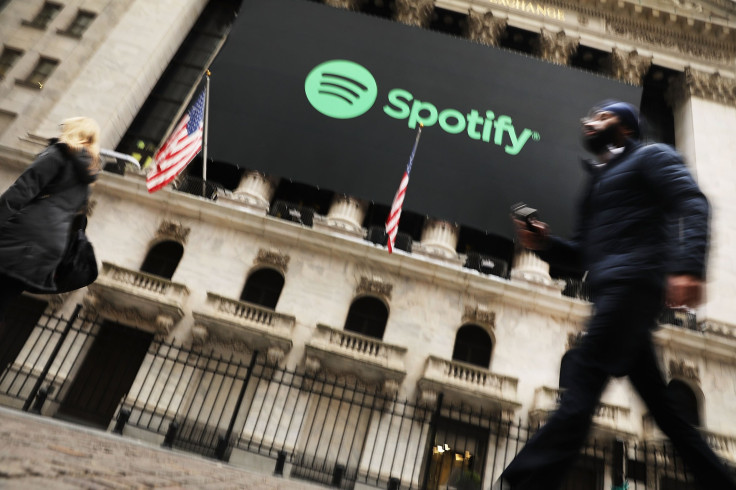Spotify's Market Debut Generates Billions For Sony And Tencent

Spotify's (NYSE:SPOT) recent public listing likely disappointed investors who were expecting quick gains. The Swedish streaming music giant made its public debut at $132 per share, surged 26% to $165.90 at the open, and then finished the day with a modest 12% gain at just under $150.
This article originally appeared in the Motley Fool.
Spotify remains a polarizing stock. The bulls believe that its position as the world's top paid streaming service is defensible, but the bears think that its slowing sales growth, widening losses, high content licensing fees, and large competitors could sink the stock.
Regardless, Spotify's market debut has already generated big gains for two major investors -- Sony (NYSE:SNE) and Tencent (NASDAQOTH:TCEHY). Let's take a closer look at the relationships between these three companies.
What Spotify Means To Sony
Sony Music, the second-largest record label in the world, held a 5.7% stake in Spotify prior to its market debut. Sony sold about a fifth of that position on the first trading day for at least $260 million, reducing its stake to 4.8% -- which is worth about $1.3 billion at current prices. With its stake now below 5%, Sony is no longer required to report any further reductions in its holdings.
Sony took on its stake in Spotify as part of a licensing deal in which the latter traded equity for music rights. Spotify struck similar deals with other record companies, but Sony Music gained a much larger equity stake than any of its rivals.
Sony Music is a major growth engine for the Japanese conglomerate. During the first nine months of 2017, its revenue rose 26% annually and accounted for 9% of Sony's top line. Operating income also jumped 60% and accounted for 14% of the company's total operating profits.
Sony attributed that growth to higher digital music streaming revenue and the popularity of the mobile game Fate/Grand Order, which is included in Sony Music's visual media and platform business. The popularity of Spotify should complement the growth of those businesses.
What Spotify Means To Tencent
Last December, Tencent and Spotify announced that they would take minority stakes in each other. Tencent now owns a 7.5% stake in Spotify, now worth about $2 billion, while Spotify owns 9% of Tencent Music, the largest music streaming platform in China, with its stake now worth about $1.1 billion.
Tencent Music combines China's leading streaming platforms -- QQ Music, KuGou, and Kuwo -- in a single ecosystem. Tencent will reportedly spin off the unit, which is valued at about $12.5 billion, in an IPO later this year. Tencent Music also holds licensing deals with Sony Music and other major record labels.
Tencent generates most of its revenue from its social platforms (WeChat, QQ, and Qzone) and its portfolio of mobile and PC games. However, the company is also investing in a growing list of high-growth companies to widen its moat against rivals Baidu and Alibaba.
Tencent has invested in brick-and-mortar retailers, food delivery services, artificial intelligence companies, game publishers, e-tailers, social networks, and even automakers to expand its ecosystem. That's why it similarly expanded its music streaming business and Tencent Video, one of the two largest video streaming platforms in China.
Many of these investments paid off, boosting its total revenue by 56% last year as its non-GAAP earnings surged 44%. On its own, Spotify's growth won't move the needle for Tencent. But when we examine Spotify alongside Tencent's other investments, like Snap and JD.com, we see that it's part of a broader effort to diversify its portfolio.
The Bottom Line
I'm not bullish on Spotify, but studying Sony and Tencent's stakes gives investors a deeper understanding of the music industry and the importance of streaming music platforms -- which are quickly replacing physical media and digital downloads as the preferred format for audiophiles.
Leo Sun owns shares of Baidu, JD.com, and Tencent Holdings. The Motley Fool owns shares of and recommends Baidu, JD.com, and Tencent Holdings. The Motley Fool has a disclosure policy.





















